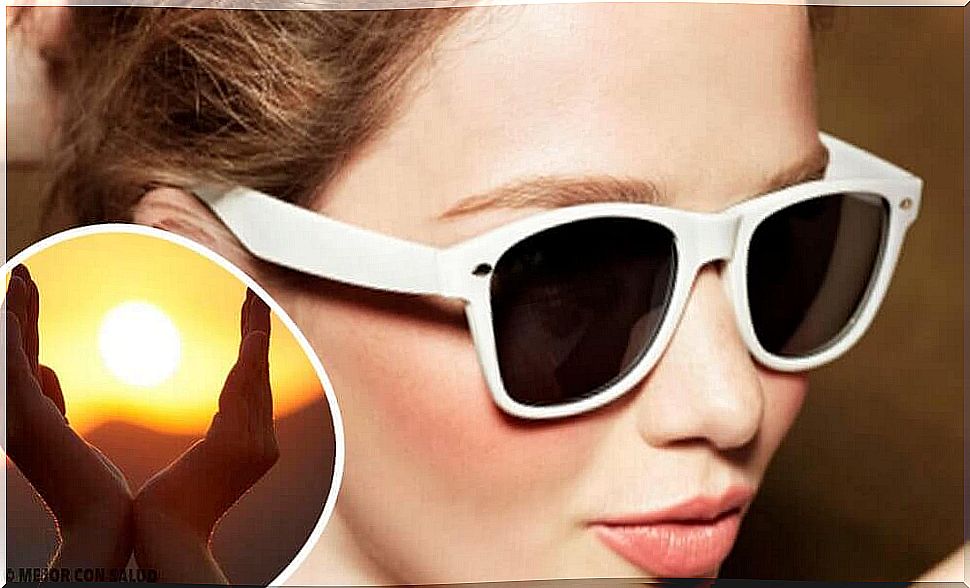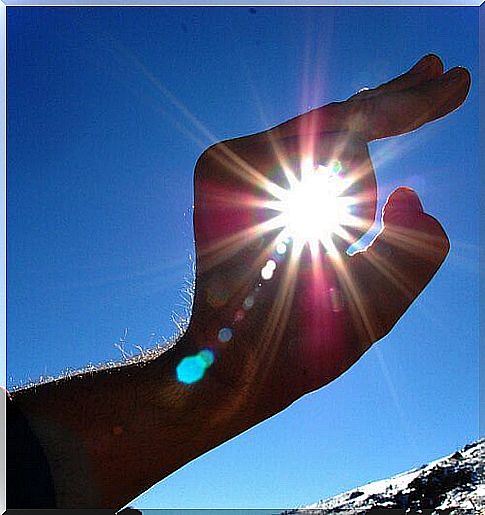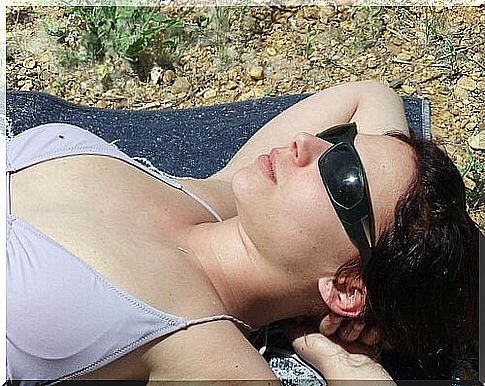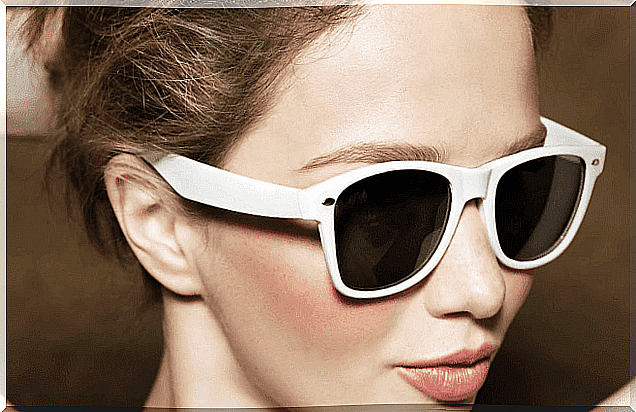9 Consequences Of Not Wearing Sunglasses

Sometimes you don’t notice the sun in the clouds or maybe you believe that not wearing sunglasses in winter can do no harm. However, UV rays increasingly damage your eyesight over time.
Keep reading below to learn more about the consequences of not wearing sunglasses.
The side effects of not wearing sunglasses
Sunglasses are not just an accessory that goes with your outfits. In reality, sunglasses are there all year round to protect your eyes from ultraviolet rays.
Not wearing sunglasses has been shown to have many side effects. We will describe a number of examples of this below.
Direct Effects of UV Rays
This radiation is very harmful to your eyesight, because it can lead to cataracts or permanent damage to the cornea, among other things .
Headaches and eye strain

In addition, sunlight irritates your eyes and it also gives you a headache that can progress to a migraine.
Dry eyes
Eyes need moisture to do their job, to focus properly and to prevent problems such as blurred vision, irritation and itching. Not wearing sunglasses can dry out your eyes.
Photosensitivity
Photosensitivity refers to difficulty seeing well in areas that are too bright or well lit, especially in natural light. If a drug or treatment has this side effect, not wearing sunglasses will make the sensitivity worse.
light phobia

Photophobia is a severe sensitivity to normal light conditions. It can be very uncomfortable during the day.
macular degeneration
Macular degeneration is a condition that develops in the center of the retina. It is one of the most serious eye problems that can happen to a person.
Conjunctivitis
Conjunctivitis is an inflammation of the conjunctiva. Signs of the virus include morning mucus discharge, swollen eyelids and a very uncomfortable feeling of having “granules” in your eyes.
burns
The sun can also burn your eyelids, which is the part of the body that is basically responsible for protecting your eyes from burning.
Why should you wear sunglasses in winter?

You don’t have to wear sunglasses in winter is a myth. We think that because the sun doesn’t shine brightly in the sky, we don’t need protection. But that’s not true.
Even if the sun is hiding behind clouds, you still need to protect yourself from the rays. You could even say that you should do that even more in the winter than in the summer. Don’t think otherwise.
Just like when you are in a snowy city or when you go on a skiing holiday, you have to wear special sunglasses that not only cover the area of your eyes, but also a good part of your face.
Snow is a light surface that reflects the sun’s rays. Those rays hit your face directly and potentially burn your skin and damage your vision.
Should children wear sunglasses?
Absolute! Just as ultraviolet rays don’t weaken themselves in winter or summer to save your eyes, they don’t change for kids either.
So kids should get into the habit of never leaving the house without their sunglasses.
The good news is that the biggest brands of sunglasses have children’s collections. These collections feature fun colors, their favorite characters from movies and TV shows. The best part is that the sizes and comfort are adapted to the needs of children.
What about low quality sunglasses?

Now we are going to look at a topic that is quite taboo, but it is worth checking out. Buying sunglasses that are not approved by medical associations and do not meet national or even international requirements can have negative consequences for the health of your eyes.
Instead of protecting your eyes, the majority of these sunglasses have the opposite effect. In other words, they cause even more damage.
The majority of patients with keratitis (inflammation of the cornea), early stages of cataracts, dry eyes and dizziness often experience problems because they use sunglasses bought at a flea market, fair, market stall or online. Basically, they come from everywhere except an optician.
It is crucial to go to the right stores and get a good rating from specialists.
As the damage gradually progresses, you may not realize that something is not right. Sometimes it is already too late by the time a person gets a check-up.
Radiation of the sun
Low quality sunglasses actually ‘mislead’ the eye. It is an organ as fragile as it is valuable. To understand a little better why the sun is harmful to your eyes, you should know that there are three types of solar radiation:
- Ultraviolet radiation (UV): These are the most harmful rays and they are always present, even on cloudy days. They cause changes in the cornea, premature aging in the eye, and damage to the conjunctiva.
- Infrared Radiation: Infrared radiation gives off the feeling of heat and can burn you. The eye absorbs these rays and as a result, the cornea can suffer from burns.
- Visible radiation: this is natural light that we receive from the sun. However, without adequate protection, it can damage our eye, especially the retina.
Sunglasses that do not meet official standards filter only the visible radiation of the sun, not the ultraviolet radiation. As a result, the pupil dilates more to let in more light.
The problem is that UV rays and infrared rays also pass through the eye. The result is a higher risk of eye complications. The damage caused to the lens by the radiation is not undone, which means that the harmful effects accumulate.









